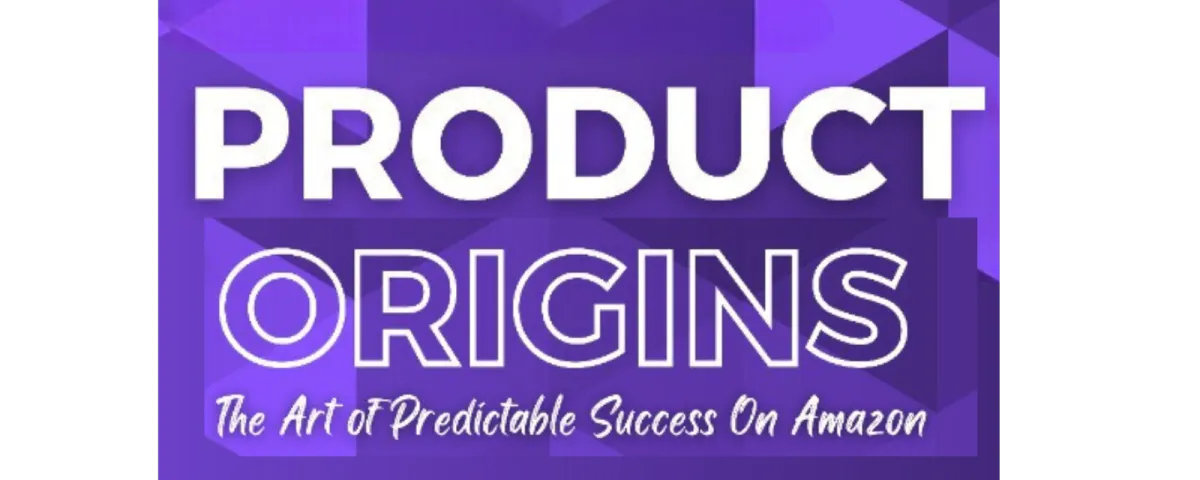See Our Latest Blogs
Check out our latest lessons, tactics, and recipes from the trenches of building profitable consulting businesses!

The Ultimate Guide to Starting on Amazon
Follow Rhett Taylor On Social Media For His Juiciest Stuff
Facebook | Facebook Group | X | YouTube | Instagram | LinkedIn | Social Blog
In Today’s 10-Minute Issue, You Will Learn…
How to get started selling on Amazon
Account Setup
Product Research
Listing Your Product
Marketing Your Product
Getting Started With Selling on Amazon
Amazon is the world's premier ecommerce marketplace and can be an immensely profitable way to conduct business if used effectively.
Assume you know both your target market and product. Check search volume using tools such as ZOOF and review reviews of similar items you plan on selling.
Be prepared to provide Amazon with all of your personal and professional details during the account setup process, such as your legal name and business name.
Account Setup
If you are considering selling products on Amazon, then understanding the account setup process is of utmost importance. There are various rules and regulations you must abide by in order to create a successful account setup - selling policies, guidelines, code of conduct agreements and business solutions agreements must all be observed to set up successfully. Furthermore, fees and fulfillment costs need to be taken into consideration as part of this process.
Once all these resources are in place, the process of setting up an Amazon seller account can begin. You'll need some basic details about yourself including a valid credit card and bank account number as well as the address from where your products will be shipped from. Furthermore, identity verification requires providing government issued ID documents and recent bank statements as proof.
Once you have submitted this information, the next step is deciding between an individual or professional seller account. When just getting started it may be best to choose an individual account so you can test out how it works before making any financial commitments - and upgrade later if your products sell well on Amazon.
Once your account is up and running, the next step in building your inventory is adding items. This process is relatively straightforward and there are various methods available: from searching specific items on Amazon's system to entering product label information directly into Amazon itself; or you could even use third-party software to automate creating listings of product.
At last, it will be necessary to create an accurate and complete Amazon listing for each item you intend to sell, featuring accurate product details as well as pictures that will attract potential customers and boost your sales. It would also be advantageous if your listing could include keywords associated with its subject matter.
Product Selection
Success as an Amazon seller hinges upon having a product that meets consumer demand while satisfying an existing pain point. Ideally, select something in which you have personal experience through either employment experience, family ties or hobby pursuits.
Customers are willing to pay more for products that provide immediate and tangible benefits; this can be demonstrated via product descriptions, customer reviews or incentives like free shipping. The ideal products have a clear value proposition that answers this question head on.
Product selection requires understanding market trends. Consumers are constantly on the lookout for new trends, so understanding them can give your product an edge in getting noticed by consumers. Analyzing demographics on Amazon or examining searches that particular keywords receive on Google are two ways of doing just this.
Be mindful of any restrictions or guidelines when selecting a product to sell on Amazon, such as safety concerns or their terms of service restrictions. Amazon does not permit certain items for sale, so always reach out to their customer support team to make sure your product fits within their platform.
As a new Amazon seller, one of the most essential steps is conducting thorough product research. Doing this will not only ensure you choose an ideal item but will help craft an outstanding listing to outshone competitors and win more sales.
Sharing listings on social media can also help boost sales. With people spending two hours each day browsing social media platforms like Facebook and Instagram, this can be an ideal way to reach potential customers and spread your product's name further afield. Professional Selling accounts make this easy with promotion links they can share via their social channels.
Listing Your Product
Selling on Amazon can be an invaluable opportunity for brands, businesses and aspiring sellers. But it's crucial that sellers understand what it takes to thrive on this massive ecommerce platform. By taking an informed and determined approach, sellers can open new audiences while expanding their brand with strategic planning and hard work.
First and foremost, it's essential to determine whether your business and product fit with Amazon's marketplace. Virtually all types of goods may be sold on this platform, although certain items may perform better in niche markets and may not make for good Amazon sellers.
Once you've identified that your product meets all the criteria, it's time to create its listing. Log into Seller Central and choose "Add a Product" under Inventory menu; there are two options here - either Add an Already Existing Amazon Listing (UPC/EAN or SKU Searching), or Create New Product Listing (CNPL Searching). Beginners might find searching easier than creating their own new listing - for this option enables users to easily identify products which match up best with what you're selling).
The second option gives you the power to create an entirely new product listing from scratch. Take the time to craft an in-depth product description and include relevant keywords in your listing; additionally, upload high-resolution images of your product for maximum impact.
Product titles are an essential element of your listing. Make sure yours entice customers with captivating titles that include both your primary keyword as well as related ones, to capture customer attention.
Finalizing your pricing strategy requires setting an attractive and competitive price point that stands up against other similar offerings on Amazon. Be mindful of all costs that may impact this decision - such as Amazon fees, shipping and handling costs, inventory storage fees, customer return fees and overhead expenses.
As part of your budget planning, be sure to include any category-specific costs applicable to your product - for instance clothing retailers should account for inventory storage fees, product return charges and additional marketing costs.
Marketing Your Product
Are You Searching for an Opportunity to Begin Selling Products on Amazon? Selling on Amazon could be your answer to launching or expanding an ecommerce brand with minimal Investment? Amazon makes selling easier than ever with the right selection, marketing strategy and business model allowing even artists and designers to sell their work easily on its platform.
Before beginning, make sure that you have a valid business email address and credit card associated with your business. Furthermore, create a bank account specifically for Amazon-related business accounts and file any license applications necessary. Finally, decide on your method of selling products either through their marketplace or Fulfilment by Amazon (FBA).
FBA (Fulfillment by Amazon) allows you to send your inventory directly to an Amazon warehouse for storage and shipment directly to customers, enabling you to focus on marketing and other areas of your business while also cutting shipping costs and improving customer service. Furthermore, selling in Professional categories requires fulfilling additional criteria related to product quality and listing standards that may require time-intensive and expensive implementation processes.
Start selling on Amazon the right way by developing an attractive value proposition. This will enable your product to stand out from competitors and give customers a compelling reason to pick your brand over others.
Social media offers another effective means of marketing products. Facebook, Instagram and Google ads provide direct access to potential buyers; plus you can promote them on other websites and forums related to your niche market.
Last, customer support and feedback should always remain top of mind. Doing this will build trust among shoppers while assuring you are providing high-quality goods or services. Furthermore, quick responses to reviews can significantly boost ratings of your store or product.
Amazon is an ideal platform to increase sales on, offering the perfect opportunity to grow ecommerce sales quickly and become an Amazon seller in no time.
Conclusion
In conclusion, venturing into the world of selling on Amazon can be a lucrative opportunity for both established businesses and aspiring entrepreneurs. However, success on this massive ecommerce platform requires careful planning, dedication, and adherence to Amazon's rules and guidelines.
Starting with a solid understanding of your target market and product is crucial. Tools like ZOOF can help you assess the demand for your products, while researching reviews of similar items can provide valuable insights.
The account setup process is a critical step in your journey as an Amazon seller. It involves providing personal and professional details, as well as deciding between an individual or professional seller account. Choosing the right account type depends on your goals and budget.
Product selection is another pivotal aspect of your Amazon business. You should aim to offer products that meet consumer demand, address pain points, and have a clear value proposition. Thorough market research, including demographics and trend analysis, can give you a competitive edge.
Creating compelling Amazon listings is essential for attracting customers and boosting sales. Your product descriptions, images, and keywords should be carefully crafted to stand out. Additionally, consider sharing your listings on social media to reach a broader audience.
Finally, marketing your products effectively is key to your success on Amazon. Whether you choose to sell directly through the Amazon marketplace or use Fulfillment by Amazon (FBA), having a strong marketing strategy can help your brand thrive. Social media advertising and excellent customer support are also essential components of your marketing efforts.
In conclusion, selling on Amazon is a viable opportunity to expand your ecommerce brand and increase sales. By following the steps outlined in this guide and staying committed to your business, you can become a successful Amazon seller.
Are you ready to take the plunge into the world of Amazon selling? Start your journey today by conducting thorough research, setting up your Amazon seller account, carefully selecting your products, and crafting compelling listings. With dedication and the right strategy, you can tap into the vast potential of Amazon's marketplace and grow your business. Don't wait any longer; get started now and unlock the opportunities that Amazon has to offer!
FAQs:
Q1: Can anyone sell products on Amazon?
A1: While Amazon allows a wide range of products to be sold on its platform, there are certain restrictions and guidelines. Some categories may require additional approvals, and there are limitations on prohibited items. It's essential to review Amazon's policies and reach out to their customer support team if you have any questions about whether your product is eligible for sale.
Q2: What are the advantages of using Fulfillment by Amazon (FBA)?
A2: Fulfillment by Amazon (FBA) allows you to store your inventory in Amazon's warehouses and have them handle shipping and customer service. This can save you time, reduce shipping costs, and provide a higher level of customer satisfaction. It's a great option for sellers looking to scale their operations.
Q3: How can I create an effective Amazon listing?
A3: To create an effective Amazon listing, focus on writing compelling product descriptions, using high-quality images, and incorporating relevant keywords. Make sure your product title is attention-grabbing and includes keywords. Additionally, consider seeking professional help or using tools to optimize your listings for better visibility.
Q4: How important is customer feedback on Amazon?
A4: Customer feedback is crucial on Amazon. Positive reviews can boost your store's reputation and encourage more sales, while negative reviews can harm your brand. Always provide excellent customer support and respond promptly to reviews, addressing any issues or concerns to build trust among shoppers.
Q5: What's the first step to becoming an Amazon seller?
A5: The first step to becoming an Amazon seller is to thoroughly research your target market and product. Understand your potential customers and assess the demand for your product using tools like ZOOF. Once you have a clear understanding, proceed with setting up your Amazon seller account and selecting your products.
Now what?
Check Out This Next Post I Think You Will Enjoy!
Ready To Stop Spending Money on Amazon & Start Making Money?
There are a few ways to start
Free 3-Part Amazon Intensive Training - A step-by-step training for Corporate/9-5 Professionals Looking for More Freedom & Peace Of Mind
Free Beginner Entrepreneur Facebook Community - A private invitation-only community for beginner entrepreneurs looking to do things right
Schedule A GamePlan Call With Our Team - Apply to speak with our team so we can walk you through our process & set you up with a gameplan to succeed in selling on Amazon
Join The 5-Day Amazon QuickStart Challenge - The best place to get a grip on selling on Amazon, along with a great foundation to start moving forward!
Join Me In My Daily Live Free Trainings (See The Schedule) - I do a daily live training on my social media, it is free, it is fun, and it covers 3 things 1) Success Mindset 2) Amazon & E-commerce 3) What I Am Actively Learning Right Now
Free Guides & Trainings
Next Level Amazon FBA Bonus Training
Click & watch the videos below to learn how to do everything from Amazon Basics To Truth About The 9-5, as well as how to have Consistent & Repeatable Success on Amazon!
The Basics Of Selling On Amazon
I'm Concerned About...
Our Advantage Over Everyone Else
Confident & Repeatable Success On Amazon
Amazon Business Specifics Training

© 2026 Company Name - All Rights Reserved, produtorigins . Maecenas commodo suscipit tortor, vel tristique sapien in sem nec, hendrerit


